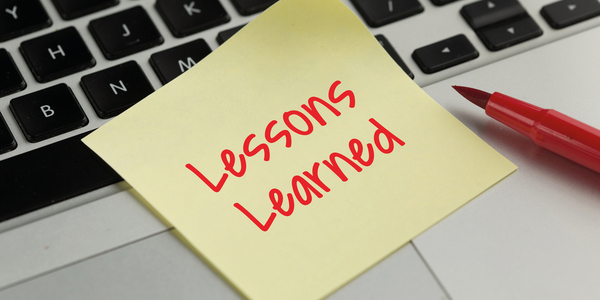CHIRP Maritime has received several near miss reports relating to fuel oil leakage and the following examples demonstrate the high risk of a fire due to human errors.
Fuel oil leaks from high pressure pipes carry a risk of fire in the engine room. Most of the incidents reported to CHIPR were caused by human errors, such as overconfidence and carelessness. CHIRP refers the following examples to highlight lessons learned.
Case 1
While the vessel was underway, a slight fuel oil leak was observed at the connection between No.6 cylinder fuel oil pump of the main engine and its high pressure pipe. Immediately, the vessel stopped her main engine and replaced the high pressure pipe. Upon investigation, it was found that the coupling nut had become loose. The cause of this incident was inappropriate torque management of the coupling nut.
Case 2
Whilst underway, the crew discovered a fuel oil leak between No.8 unit fuel oil high pressure pipe connection of the main engine and the injection control unit. The vessel stopped her main engine and replaced the fuel oil high pressure pipe. On further investigation, the sealing surface of the removed fuel oil high pressure pipe showed slight press marks.
To help eradicate fuel oil leaks from the main engine fuel oil high pressure pipes, the following key actions for fitting and unfitting the fuel oil high pressure pipes should be followed:
- Close Inspection: seating surface/screw parts of the pipe at both ends and their mating parts should be inspected and cleaned carefully. For close inspection, the fuel oil high pressure pipe should be removed completely when it is dismantled for maintenance, such as during fuel valve replacement, etc.
- Proper reconditioning: if any damage to the seat surface is observed, the relevant seat surface is to be ground by the special tool on board. Also, the lapping special tool must NOT be deformed or damaged.
- Proper tightening: the fuel oil high pressure pipe should be tightened to the proper torque in accordance with the manufacturer’s instructions.
During daily inspection, the 3rd engineer noticed that fuel oil was present inside the Purifier Room, the source being from the fuel oil heater of No 1 auxiliary boiler. The engineer isolated the heater, drained the piping of No 1 boiler, and put No.2 auxiliary boiler fuel oil heater into service.
Investigating the cause of the defect, it was found that the leakage occurred due to the poor condition of a gasket, which was replaced with a spare. The damaged gasket was found to be of the ordinary type and not the spiral high temperature gasket which is used for high temperature piping systems. The investigation also noted that the last visual inspection of the system was conducted the evening before, in accordance with the UMS check list, and no problems were identified. Following the incident, a thorough inspection of the piping system was carried out. No defects or leaks were identified and the piping was found in good condition. It was concluded that inadequate inventory management of the vessel’s spare parts was a potential factor, and there was improper planning during the fitting of the original gasket.
Lessons Learned
- Machinery spaces, and especially purifier rooms, are very fire-prone areas. Therefore, it is essential that these spaces are inspected carefully during all daily and UMS inspections.
- Maintenance of critical systems such as the fuel system should be properly planned and executed, ensuring that the spare parts used are fit for purpose.
- Effective inventory management, proper tagging and control of spare parts onboard and proper checking of the condition and suitability of spare parts prior to use are essential safety issues.
- Fuel oil high pressure piping systems should be fitted with spare parts/consumables appropriate for the high temperatures involved.
Having discussed the reports, the Maritime Advisory Board agreed that fuel oil systems are high risk, and that particular attention should be paid during maintenance. The correct identification of gaskets is essential for high pressure/temperature systems. The Board also stressed the need for careful oversight during maintenance or repairs. When a defect regarding an incorrect type of gasket/joint being fitted has been identified at one location in the high temperature pipework, it would be a good risk control measure to open up the remaining similar joints in the pipework, to ensure that correct spiral-wound gaskets/joints have been fitted.
The 1998 HMAS Westralia fire with subsequent fatalities caused by fuel leakage from non-genuine flexible pipes was referenced. In addition, a first response to fuel fires should be foam blanket cover. It was also highlighted that low pressure piping does not require shielding, so if a leak occurs the consequences could be severe.
The Shipowners Club has noted that over 50% of fires within the engine room are caused by fuel/lubricating oil leakage onto hot surfaces. Oil leaks are often due to the failure of pipes and/or associated fittings. These failures can be attributed to a variety of causes including:
- Mechanical fatigue
- Vibration and pulsations
- Chafing/fretting
- Improper securing
- Damage during maintenance operations
- Improper repairs
- Incorrect tightening procedures
- Poor quality materials






























































